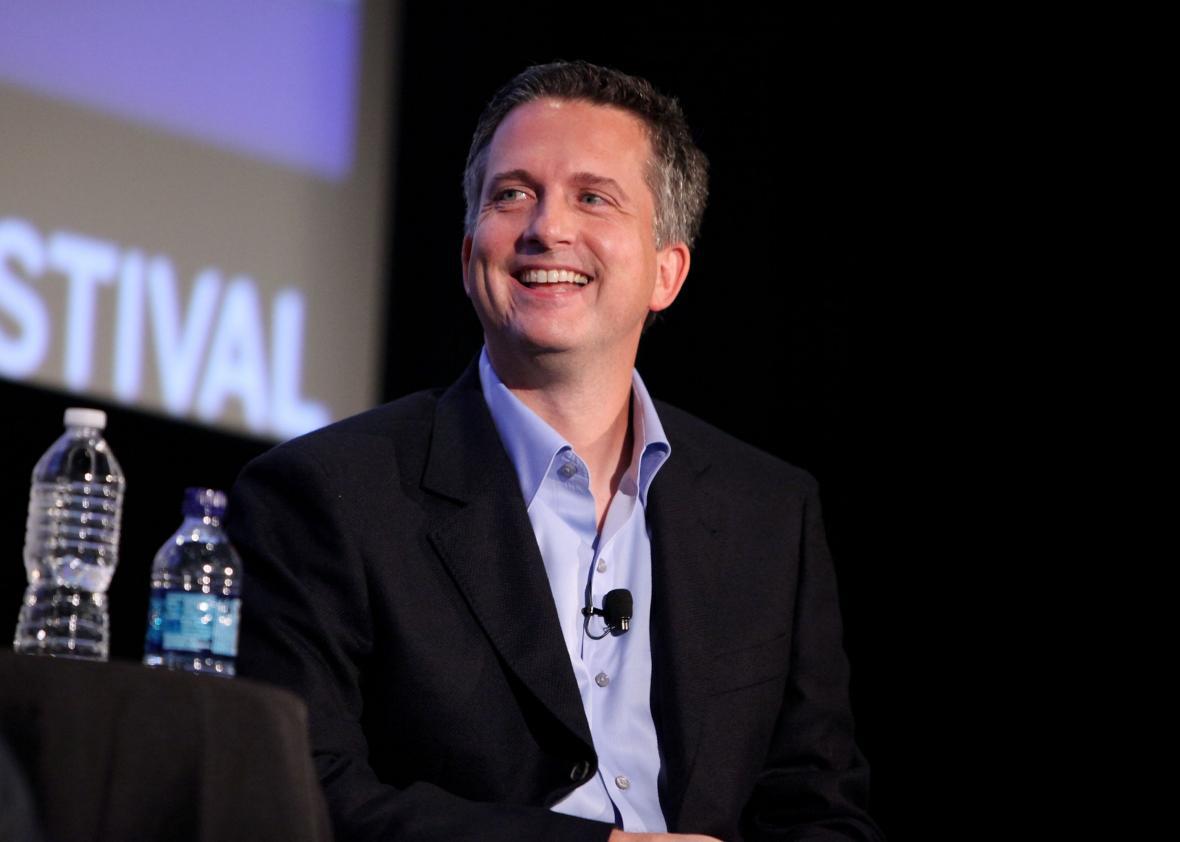Bill Simmons had a lengthy cover interview in the Hollywood Reporter published on Wednesday, and it is full of fascinating tidbits about his much-publicized breakup with ESPN and also lots of swearing.
Simmons, who was dropped from the network in 2015 after more than 14 years with the company after a series of internal disputes, still clearly holds hard feelings toward his former employer even after moving on to HBO for a new TV series that premieres this month. He was especially unhappy with how he learned of the departure, specifically from Twitter. “It was fucking shitty,” Simmons said. “By the way they handled it, you would think I played grab-ass with some makeup assistant or something.”
ESPN decided not to renew his contract in May of last year one day after a rant against NFL commissioner Roger Goodell’s handling of the deflategate scandal that included a joke about the commissioner’s lack of “testicular fortitude.” This came months after Simmons had been suspended for three weeks after calling Goodell a liar over his handling of the Ray Rice case and challenging “one person” to punish him for the statement. ESPN pays the NFL nearly $2 billion a year for the rights to Monday Night Football. Simmons says he was undermined at the network by people who helped to sour his close relationship with ESPN president John Skipper.
From the Reporter:
To this day, Simmons isn’t sure Skipper ever actually listened to the Patrick interview; he didn’t need to, figures Simmons, because at that point the ESPN chief already had several underlings whispering in his ear, “Did you see what Simmons said about Goodell now?” A year removed, the emotions still are palpable. “[Those people] were just trying to cause trouble,” says Simmons. “It was fucking high school.”
Simmons now says he didn’t listen to the episode of the podcast that initially got him suspended in 2014, and he would have edited it had he done so:
“If I’d heard it, I would’ve been like, ‘Shit, we should soften that,’ ” he says now. “I just said it wrong. I was basically saying, ‘If the NFL wants to come after me …’ But it sounded like I was challenging ESPN, which was just stupid, and there’s no reason to do that.” He pauses, then adds: “It probably happened for a reason. If it hadn’t been that, it would’ve been something else.”
It wasn’t the only time that Simmons seemed to take some responsibility for the split:
“I’m not blameless,” he says now, acknowledging: “I acted like a brat a couple times, and there are things I could have handled better.”
Simmons described how he was wooed by HBO even before ESPN decided not to renew his contract and how he was swept off his feet:
“It was like being in a super-unhappy marriage and then just meeting someone at the grocery story and being like, ‘Oh, that girl’s cool. I could date that person,’ ” says Simmons. He walked out [of the meeting] and shot a note to [his agent James] Dixon: “I’m gonna work for HBO, that’s how this is going to play out.”
Perhaps the most interesting portion of the interview—for media hounds at least—is when he describes the financial backing he has for his new website the Ringer. In October, ESPN had shuttered the Simmons-founded and much-beloved longform journalism site Grantland presumably because of low traffic numbers and the Ringer seems to be its spiritual successor. The Reporter reported that HBO is paying Simmons between $7 million and $9 million a year and is a minority investor in the Bill Simmons Media Group, which hosts the Ringer.
For the time being, Simmons has taken no other outside investment, using what insiders describe as seven-figure revenue generated primarily by sponsorship and branding deals to help fund The Ringer side of the enterprise. “I had all of these people who wanted to [invest,] famous fucking people,” says Simmons. “But one of my goals was to have as few people in my life as possible who would be like, ‘Why are you doing that? What’s going on here?’ ” Looking ahead, he and Eric Weinberger, whom he recruited from the NFL Network to run the company, won’t rule out taking on additional investors.
The rest of the interview includes more interesting stuff about his displeasure with ESPN, how he moved to HBO, what his new show will look like, and how having a sports-playing daughter turned him into a feminist. It’s worth a read in its entirety.
